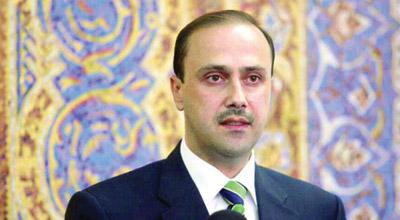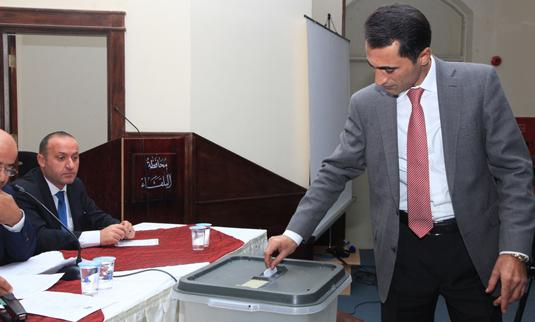You are here
‘Diversity, meritocracy key criteria in selecting non-elected governorate councils members’
By JT - Aug 17,2017 - Last updated at Aug 17,2017

Mohammad Momani
AMMAN — The appointment of non-elected members of governorate councils will take into consideration diversity and meritocracy, a senior official said Thursday.
Minister of State for Media Affairs and Government Spokesperson Mohammad Momani told The Jordan Times that due to the nature of the governorate councils’ mission, there is a need for technocrats to balance the makeup of these bodies, which will replace assigned consultative councils for local executive councils, in a bid to enhance the oversight role of citizens and public participation in decision making as developmental planning and allocation of funds will be vested in the new councils.
In Tuesday’s elections, Jordanians elected mayors, members of municipal and sub-district councils as well as the governorate councils, which were elected for the first time under the 205 Decentralisation Law.
Article 6 of the law stipulates that the Cabinet will appoint members of the governorate councils, upon a recommendation by the interior minister, no more than 15 per cent of the number of elected members, provided that one-third of this percentage is allocated to women, who also enjoy a 10 per cent quota of the elected members.
“The selection of members of the decentralisation bodies is meant to support these councils with experts in economy, investment and law, among other specialists,” the minister said.
The said law provision also ensures justice by allowing the appointment of members of smaller groups in communities that are not represented in the governorate councils.
The total number of seats of these council stands at 336, including 10 per cent allocated for a women’s quota.
Meanwhile, Momani said that Jordanians “are entitled to take pride” in the outcome of the voting process, which was conducted with the “highest standards of efficiency, integrity and transparency in a turbulent region”.
Election watchdogs have acknowledged that the pools were “close to international best practices” in terms of integrity and organisation, citing few violations mostly blamed on misconduct by candidates and their supporters.
The Minister stressed the importance of the new era in Jordan’s democratic experience, as the election of municipal officials and decentralisation representatives would reflect positively on “the quality and level of services provided to citizens in their regions”.
On the victory of youth and women leaders in a number of the municipalities of the Kingdom, Momani said that this indicates that the electoral process has achieved “a major political goal”, when such leaders sit behind the steering wheel in local development processes.
Related Articles
AMMAN — The newly elected governorate councils convened on Sunday for their first meetings, during which they elected their presidents and v
AMMAN — Interior Minister Ghaleb Zu'bi on Thursday directed governors to summon the governorate councils to convene on September 10, at 10am
AMMAN — The Independent Election Commission (IEC) on Wednesday announced the final results of the decentralisation and municipal elections.S












